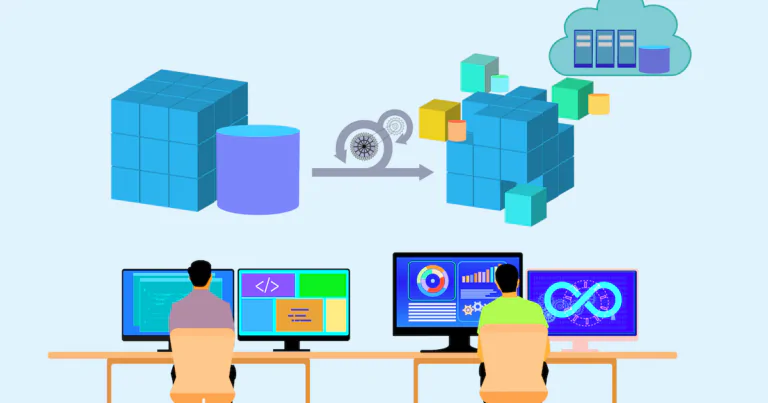Healthcare services have been considered among the most flourishing and faster-growing industries in the world. There is an unprecedented demand for quality healthcare services especially since the world was hit by Covid 19. Healthcare IT companies, healthcare software solutions, medical devices, and others play crucial roles in clinical settings and hence require to be more scalable, integrated, intelligent, user-friendly, and secure.
Here comes the need for legacy application modernization services as the current solutions from healthcare software were effective but they lack the core technologies and competencies essential to integrate and support modern solutions. Since healthcare providers and clinicians have already indicated how crucial modern medical features are for effective care delivery, jumping on to modernize the legacy applications of healthcare solutions has become a crucial need. Let’s check the key areas where Application Modernization Services are crucial in the healthcare industry.
Cloud-Based Applications
Cloud has become a standard for developing modern applications and achieving business goals such as high performance, scalability, and better ROI. Cloud-based applications even now recognized as software for life enable providers and researchers to better care delivery. There are a number of benefits cloud offers to the healthcare industry such as; security from cyber attacks, compliance maintenance, including HIPAA, HITECH, etc., centralized data with seamless access from across the world, secure and fast data backup, system reliability, and support for innovation with AI/ML, AR/VR, and others.
UI/UX Modernization
Medical innovations do not just focus on increasing healthcare quality and improving patient experience, but also enhance doctors' satisfaction and make their job easier with healthcare software. However, only effective software doesn't easies out the doctor's or patient care provider's job. Being a user of healthcare software, these medical professionals basically interact with the UI/UX design of the healthcare application. Henceforth, modernizing UI/UX is crucial to deliver smart healthcare solutions for both home and hospital care use.
Data Management and Analytics
Statista talked in a report that 2,314 exabytes of healthcare data was generated in 2020. This data can be used to generate actionable insights for healthcare providers and patients, but to do that it requires to consolidate and analyzing data with advanced analytics tools. To consolidate the data and extract it in the forms and formats, it is also important that the growing volume of data is also stored properly. Henceforth data modernization has become critical in healthcare and a widely asked question as mentioned by several application development companies. Data modernization offers better data storage solutions, data interoperability, and data integration essential to support world-class healthcare solutions.
To Fuse Innovation and Research
The Healthcare industry is one of the biggest fields where IoT, RPA, AR, VR, AI, ML, and other most advanced technologies are being experimented and efforts are still continuing. To support innovation and research to derive the desired outcomes, legacy application modernization service is crucial to opt and update the dated healthcare applications and software to support growing needs. With modernization, healthcare can’t be made mobile.
Final Word:
Covid19 pandemic has sparked heavy growth for application modernization and digital transformation among all sorts of medical and healthcare businesses. Agile and scalable applications and connected healthcare ecosystems have become the need of the hour, such as scalable and reliable infrastructure, and streamlined workflows. Transforming dated healthcare applications into digital platforms that support omnichannel needs is something that the healthcare industry expects and that has been achieved with application modernization services.
